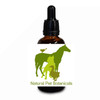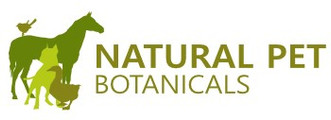Members Only
What Causes Low Stomach Acid?
Low stomach acid can develop for a number of reasons, and may be influenced by diet, nutrient status, and microbial balance. Stomach acid is essential for breaking down food, supporting nutrient absorption, and maintaining healthy digestion.
1. Microbial Imbalance
Lactic acid bacteria and lactic acid yeast normally help acidify the colon and aid digestion. When the microbiome in the large intestine is lacking, an overgrowth of bacteria may occur in the small intestine (a condition known as SIBO). This can cause regurgitation of fluids and digestive discomfort.
Traditional support: the probiotic strain Saccharomyces boulardii (SB) has been studied for supporting gut balance.
2. Excessive Red Meat Intake
Diets high in red meat may slow digestion. For pets, balancing meals with pureed vegetables and less meat can sometimes help overall digestive ease.
3. Low Salt Intake
A deficiency of natural salts may affect stomach acid production. Using mineral-rich salts such as Celtic salt, rather than refined table salt, may help maintain balance.
4. Potassium Deficiency
Low potassium can contribute to reduced stomach acid. Potassium chloride provides a direct source; humans typically require 4,000–5,000 mg per day.
5. Zinc Deficiency
Zinc plays a role in digestive function. Low zinc status has been linked with reduced stomach acid and poor assimilation. Zinc picolinate is a form commonly used for support.
6. Iodine Deficiency
Iodine supports thyroid health. In both humans and animals, low thyroid activity (hypothyroidism) can be associated with reduced stomach acid.
7. Magnesium Deficiency
Magnesium supports smooth muscle relaxation, including in the lower oesophageal sphincter. Deficiency may contribute to acid reflux or regurgitation. Symptoms of deficiency can include muscle weakness, difficulty swallowing (dysphagia), or even neurological signs like nystagmus.
Natural pet botanicals are not intended to replace veterinary care or medication.
SET OF
SET OF 1
1. Ger-Reflux 343 Formula
Contains:
Robinia pseud-acacia (Robina 12X)
Sodium Sulphate (Nat Sulph 30C, 200C)
Vegetable Charcoal (Carbo veg 30C, 200C)
Hydrochloric Acid (Mur acid 30X, 30C, 1M)
Nut (Nux vomica 30C, 200C)
Brimstone (Sulphur 30C, 200C)
Blue Flag Plant (Iris versicolor 30X)
Phosphate of Soda (Nat Phos 6X, 1M)
Gum Resin (Asafoetida 13X)
Wild Indigo Root (Baptisia 1M, 1M)
Mineral Phosphorus (Phosphorus 12X, 1M)
Indian Cockle (Cocculus indicus 30C)
in 20% USP alc.in purified water.
Need more advice or have more questions? Contact us for a FREE consultation with one of our fully qualified practitioners.
These statements are for general wellbeing and educational purposes only. This product is not intended to diagnose, treat, or prevent any disease. Always seek veterinary or professional advice for specific health concerns.
DISCLAIMER
The statements made regarding these products have not been evaluated by the Food and Drug Administration. The efficacy of these products has not been confirmed by FDA-approved research. These products are not intended to diagnose, treat, cure or prevent any disease. All information presented here is not meant as a substitute for or alternative to information from your health care practitioners. The Federal Food, Drug, and Cosmetic Act require this notice.










